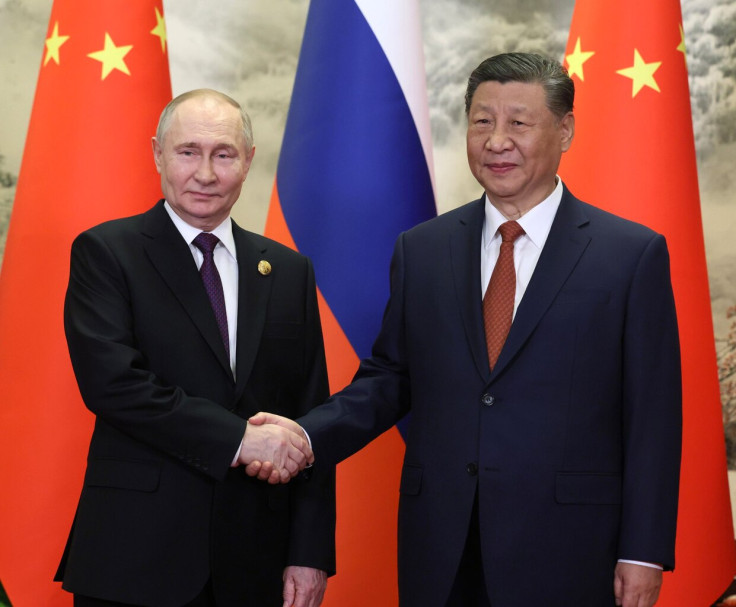Vladimir Putin And Xi Jinping's 'Sex War' Uses 'Honeytraps' To Steal Nuclear Secrets: Report
They say looks can kill… and it might expose secrets, too.

In a plot pulled straight from a Cold War spy thriller, Moscow and Beijing are allegedly waging a sophisticated 'sex war' to steal the West's most sensitive secrets.
New intelligence, reported by RadarOnline, cites U.S. counterintelligence sources who claim Vladimir Putin and Xi Jinping have revived the classic 'honeytrap' operation. These new claims allege the two powers are deploying attractive agents to infiltrate the defence, nuclear, and AI sectors, weaponising romance to extract high-level information.
The term 'honeytrap' is defined by the Oxford Dictionary as a deceptive practice where an organisation or person uses romantic or sexual relationships to manipulate someone for political, personal, or monetary gain.
It is often used to steal highly confidential information or influence the target's way of thinking. The term, which evolved from the earlier phrase 'honey pot', was popularised in the 1970s through spy novels and action films.
How Putin And Xi Jinping Allegedly Weaponise Emotion
Sources quoted in the report frame the campaign as a chilling form of psychological warfare. Rather than relying solely on digital cyberattacks, this strategy targets the individuals behind the systems, aiming to weaponise human emotion.
A senior Western counterintelligence official reportedly described seduction as 'cheaper, harder to detect, and often far more powerful than cyberattacks.'
According to the report, these revamped honeytrap programmes are allegedly being carried out by Russian intelligence in close coordination with China's Ministry of State Security.
Together, they reportedly focus on scientists, engineers, and defence officials, especially those working in sensitive fields like nuclear research and artificial intelligence.
The secret 'sex war' is said to prioritise human targets over hacking digital networks. The report quotes a former national security analyst, Jeff Stoff, who claims that Chinese operatives are actively targeting US-based start-ups, academic institutions, and military-funded research projects.
This is corroborated by James Mulvenon, the chief intelligence officer at Pamir Consulting, who noted his suspicions were raised after he received repeated LinkedIn connection requests from 'the same type of attractive young Chinese woman'.
A 'New Front Line' Beyond Putin And Xi Jinping's Cyberattacks
European intelligence sources bluntly describe the scheme as the 'new front line' in spying, where Moscow and Beijing seek to exploit emotional vulnerabilities rather than just digital ones.
The resurgence of honeytrap espionage is a concerning development because it combines human manipulation with high-level technology theft, in ways that seem more suited to a James Bond film.
These spy networks, working in plain view and undercover, allegedly use charm and seduction to acquire information they are not supposed to have. By building long-term relationships, they can leverage emotion to steal vital intellectual property and sensitive nuclear data.
In this alleged 'sex war', counterintelligence agencies in the U.S. and Europe could find themselves facing a form of warfare that is deeply personal, highly strategic, and potentially more effective than traditional cyberattacks. Whether these honeytrap operations prove successful or not, the report underscores an urgent need for government leaders to protect their personnel, especially those on the frontline of protecting a nation's most crucial information.
© Copyright IBTimes 2025. All rights reserved.





















